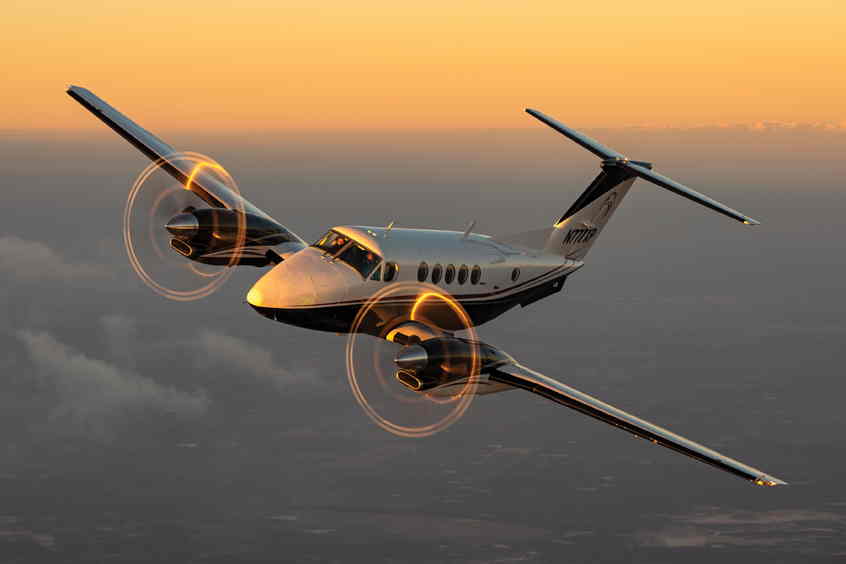Why visit ACE ’24?

In May of this year, modification specialist Blackhawk Aerospace celebrated its 20th year in business with an overall rebrand and facility expansion at its Waco, Texas headquarters. Since reaching that milestone, the company has also certified the world's fastest King Air and has signed another 10-year agreement with Pratt & Whitney Canada.
The company anticipates major future growth, having purchased an adjacent 10,000 sq ft hangar and offices to house its growing sales and marketing teams. The new facility doubled its footprint at Waco, which the company says was needed in order to showcase aircraft for sale that have been refurbished under the popular Phoenix by Blackhawk programme.
“The Phoenix programme has really taken off this year,” says president and CEO Jim Allmon. “The extra hangar space was essential in supporting the rapid growth of the programme.”
One Phoenix-upgraded aircraft includes Blackhawk's King Air 300 certification test bed, FA-124. Blackhawk upgraded the aircraft with new paint, new interior, new propellers, and of course, a new XP67A Engine+ upgrade.
“FA-124 is not only the best-looking King Air 300 on the market, but it's also the fastest King Air in the world,” enthuses Allmon. “Our official reported cruise speed states 343 ktas, but that's a conservative number. We've seen speeds north of 350 ktas from the -67A engines and Hartzell propeller combination. It's truly incredible.”
Since obtaining the XP67A certification for the King Air 300 in July, Blackhawk has secured five orders for King Air 300 operators.
The upgrade removes the standard 1050 shaft horsepower (SHP) PT6A-60A engines and Hartzell four-blade metal propellers and replaces them with factory-new 1200 SHP PT6A-67A engines and Hartzell five-blade composite propellers.
Another programme with major growth potential involves the King Air 300's big brother, the King Air 350. Blackhawk has seen tremendous success in upgrading both civilian and special mission 350's and plans to expand even further into the special mission arena. The company stated it will release more information on its special mission projects later this year.
To help support the projected growth from these new programmes as well as support Blackhawk's legacy products, Blackhawk recently signed another 10-year agreement with Pratt & Whitney Canada for factory-new PT6A engines. This arrangement continues the successful relationship between the two partners, which has resulted in an exchange of over 1,600 engines over the past 20 years making Blackhawk one of the largest buyers of P&WC turboprop engines in the world.
“Pratt has been an invaluable partner for us from day one,” Allmon said. “Not only has it produced the highest-quality engine any pilot could want, but it has also been a sincere pleasure to work with for the past 20 years and we look forward to continuing our strong partnership.”
